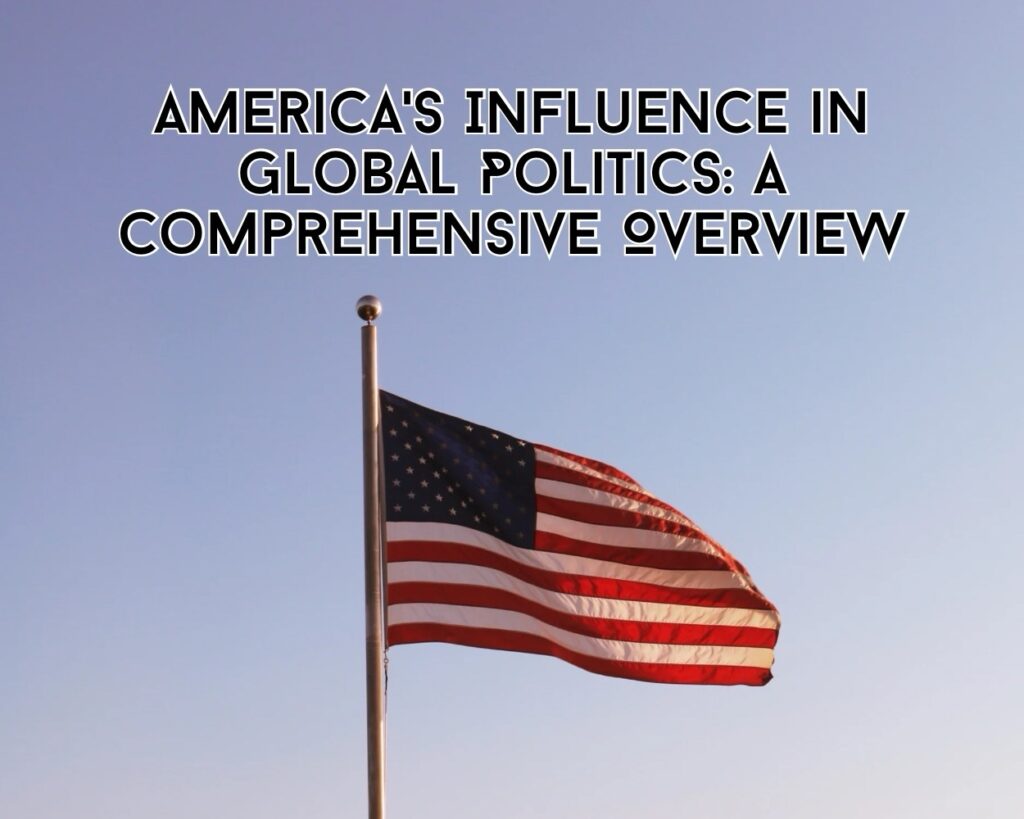In recent years, the debate over the size and scope of U.S. international aid has intensified, reflecting a broader concern about the burden it places on American taxpayers. As the government allocates billions of dollars to foreign assistance, questions arise about the fairness and sustainability of these expenditures, especially in the context of domestic needs and fiscal responsibilities. The issue is not just the amount of money being sent overseas but the impact of these decisions on the average American’s wallet. With the fiscal landscape in 2024 bringing this issue into sharper focus, it’s crucial to examine the real cost of international aid through the lens of taxpayer contributions.

The sentiment among many taxpayers is clear: if the country can afford to give away such significant amounts to other nations, perhaps Americans are paying too much in taxes. This perspective isn’t just a knee-jerk reaction to higher tax bills but a complex evaluation of how government priorities align with the needs and expectations of its citizens. The noble intentions behind international aid—supporting global stability, promoting development, and providing humanitarian relief—are undeniable. Yet, the execution of these goals raises critical questions about fiscal policy, taxation fairness, and the ultimate impact on those who fund these international endeavors through their hard-earned money.
As we delve deeper into this issue, it’s essential to consider the multifaceted aspects of international aid, including its objectives, outcomes, and the inherent trade-offs involved in allocating taxpayer funds on a global scale. The journey toward understanding the taxpayer’s burden in funding international aid begins with a critical look at the numbers, the rationale behind these expenditures, and the broader implications for American society and its fiscal health.
The Scale of U.S. International Aid: Facts and Figures
The scale and scope of U.S. international aid are monumental, encompassing a broad spectrum of initiatives aimed at promoting global stability, economic development, and humanitarian assistance. This financial support, while noble in its intentions, comes directly from the taxpayer’s pocket, leading to an inevitable debate about the real cost of such generosity on the domestic front. As of 2024, the American government’s commitment to foreign aid has become a focal point of scrutiny, prompting a reevaluation of how these funds align with national interests and taxpayer fairness.
To understand the magnitude of U.S. foreign aid, it’s important to break down the budget into its core components. Billions are allocated annually across various sectors, including health, education, disaster relief, and military support. While these investments are designed to foster international goodwill and support global development goals, they also raise questions about prioritization, especially when domestic needs—such as infrastructure, education, and healthcare—demand significant financial attention.
The debate surrounding the allocation of these funds is not merely about the dollar amount but the impact and efficacy of these investments. Critics argue that a more transparent and accountable approach to foreign aid could lead to more effective use of taxpayer dollars, ensuring that the aid provided truly makes a difference in achieving its intended goals. Furthermore, this discussion is intricately linked to broader fiscal policies and the government’s approach to managing both its resources and responsibilities.
For those interested in exploring the nuances of this debate further, especially in relation to other pressing domestic issues like border security, The Debate on US-Mexico Border Security: Perspectives and Solutions offers insights into how governmental priorities, including international aid, intersect with national security concerns. This exploration is crucial for understanding the complex balance between supporting international objectives and addressing critical domestic issues.
As we proceed, it’s essential to examine the controversy and dialogue surrounding foreign aid, shedding light on the diverse perspectives that shape this debate. The critical question remains: how can the U.S. navigate its role as a global benefactor while ensuring its citizens do not bear an undue fiscal burden?

Taxation Without Representation? The Debate Over Foreign Aid and Domestic Needs
The growing discontent among American taxpayers over the allocation of their hard-earned money towards international aid and support for non-citizens, particularly undocumented immigrants, is reaching a boiling point. This frustration stems from a palpable sense of taxation without representation, as many feel their financial contributions are diverted away from pressing domestic issues—hunger, homelessness, and the struggles of veterans—to foreign interests and the welfare of non-citizens. This sentiment taps into a deeper narrative of fiscal responsibility and the prioritization of American welfare above all.
At the heart of this debate is a question of balance and fairness. With millions of Americans facing economic hardship, struggling to make ends meet, and an alarming number of veterans living without the care and support they deserve, the government’s financial decisions have come under intense scrutiny. The argument is not against the spirit of international aid or providing support to those in need but questions the scale of these commitments when American citizens themselves are in dire straits.
The issue is multifaceted, touching on the principles of humanitarian aid, national sovereignty, and economic justice. Critics argue that while the U.S. has a role to play on the global stage, this should not come at the expense of its own citizens. The notion that American taxpayer money is used to fund extensive international programs and support undocumented immigrants, while many Americans live in poverty and veterans suffer from neglect, strikes many as a misallocation of resources.
This perspective calls for a reevaluation of how taxpayer funds are distributed, advocating for a “America First” approach that prioritizes the welfare of American citizens and addresses the nation’s own challenges before extending its generosity abroad. It highlights the need for a more balanced approach to fiscal policy, one that ensures the welfare of Americans is not overshadowed by international commitments.
The debate over foreign aid and support for non-citizens is not just about numbers on a budget; it’s about the values and priorities that guide those financial decisions. As the U.S. navigates these complex issues, the voices of American taxpayers, expressing concern for their fellow citizens and questioning the direction of their country’s fiscal policies, are becoming increasingly difficult to ignore. The call for a reassessment of priorities is clear, emphasizing the importance of addressing domestic needs and ensuring that the welfare of American citizens is at the forefront of governmental spending decisions.

The Ripple Effect: How Foreign Aid Impacts Domestic Policy and Prioritization
The allocation of significant portions of the U.S. budget to foreign aid and support for non-citizens has a ripple effect that extends far beyond the immediate financial outlays. It influences domestic policy, budgeting priorities, and the broader socio-economic landscape, often leading to contentious debates about national identity, patriotism, and the principles that should guide American generosity. This discussion is not only about the fiscal impact but also about the symbolic messages conveyed through these expenditures, especially in light of the hardships many Americans face.
The financial choices made by the government reflect its priorities and values, and when significant funds are directed towards international aid or support for undocumented immigrants, it raises questions about the commitment to addressing domestic issues. The sentiment among many American taxpayers is that these decisions often come at the expense of critical domestic programs, including those aimed at alleviating poverty, improving healthcare, and supporting veterans. The stark contrast between the resources allocated to foreign aid and the plight of struggling Americans, including homeless veterans, underscores a perceived misalignment of priorities.
In the midst of this debate, expressions of American identity and values become particularly poignant. Symbols of faith and patriotism, such as the “American by Birth, Christian by Grace” hoodie, serve as reminders of the foundational principles many believe should guide the nation’s policies. These symbols resonate deeply with those who feel that American generosity should first and foremost address the needs within its own borders, before extending beyond. For those interested in these expressions of faith and patriotism, the American by Birth, Christian by Grace hoodie represents a powerful statement about the intersection of national identity and Christian values in the context of current debates.
The discussion around foreign aid and support for non-citizens is thus not only a matter of fiscal policy but also a reflection of deeper questions about American identity, priorities, and the role of faith and patriotism in shaping these decisions. It calls for a thoughtful reassessment of how the U.S. navigates its responsibilities to its citizens and its role on the global stage, striving to find a balance that honors both its humanitarian impulses and the immediate needs of its people.
As the U.S. moves forward, the challenge lies in crafting policies that reflect a comprehensive understanding of both the tangible and symbolic implications of government spending. This requires a delicate balancing act, one that respects the nation’s values and traditions while also addressing the complex realities of global interdependence and domestic welfare.

Reassessing Fiscal Priorities: The Shift in Strategy
In recent American history, fiscal policies and priorities, especially concerning foreign aid and economic support to other countries, have undergone significant scrutiny and shifts. During President Donald Trump’s administration, there was a notable change in approach towards international financial assistance. The administration advocated for a strategy that emphasized loans over direct grants, with the rationale that such an approach would lead to more accountability and potentially allow the United States to recoup its investments, thereby benefiting American taxpayers.
This policy shift highlighted a broader debate on the effectiveness and efficiency of foreign aid. The Trump administration’s stance was that American generosity must be balanced with pragmatism, ensuring that financial assistance to other nations does not come at the expense of the American people’s welfare. This perspective was rooted in a broader “America First” policy, which prioritized the interests of American citizens and aimed to ensure that foreign engagements, including aid, served national interests and could potentially yield returns, rather than being perceived as unilateral giveaways.
Critics and supporters alike viewed this approach through various lenses, reflecting the complex interplay between national interests, global responsibilities, and the ethical dimensions of aid. Supporters argued that focusing on loans and seeking repayment was a way to ensure that recipient countries were invested in the success of the funded projects, promoting sustainability and mutual benefits. On the other hand, critics worried that such an approach might neglect the humanitarian aspect of aid, potentially sidelining projects that were crucial but not necessarily profitable.
The discussion around the Trump administration’s policies on foreign aid and economic support underscores a fundamental question: How can the United States best leverage its resources to support other countries while ensuring that the interests and well-being of American taxpayers are protected and prioritized? This question remains central to the ongoing debate about the role of the U.S. in the global community and the best strategies for managing its international aid programs.
As the United States continues to navigate its fiscal policies, the lessons learned from past administrations offer valuable insights into the complexities of balancing domestic welfare with international responsibilities. The conversation about foreign aid, loans versus grants, and the accountability of recipient nations is an essential part of this ongoing reassessment, reflecting the diverse perspectives and priorities that shape American foreign policy.

Navigating the Complexities of Foreign Aid and Fiscal Responsibility
Why does the U.S. provide so much international aid?
The U.S. provides international aid to support global stability, promote economic development, and address humanitarian crises. This aid reflects America’s values and interests in fostering a safer, more prosperous world. However, the debate continues on the balance between these global commitments and addressing domestic needs.
How can the government ensure that foreign aid does not overshadow domestic priorities?
Ensuring that foreign aid does not overshadow domestic priorities requires a comprehensive approach, including rigorous oversight, transparent budgeting, and active engagement with the American public. Policies should be evaluated for both their international impact and their alignment with national interests, ensuring that domestic needs are not sidelined.
What was unique about President Trump’s approach to foreign aid?
President Trump’s approach to foreign aid was characterized by a preference for loans over grants, aiming to ensure that recipient countries would eventually repay the assistance. This approach sought to prioritize American financial interests and reduce the burden on taxpayers, reflecting a broader “America First” philosophy.
Can foreign aid be beneficial to the U.S. in the long run?
Yes, when strategically implemented, foreign aid can be beneficial to the U.S. It can foster economic growth in recipient countries, leading to new markets for American goods and services. Additionally, it can contribute to global stability and security, which indirectly benefits the U.S. through reduced conflict and economic partnerships.
How can I, as an American, influence my government’s approach to foreign aid and fiscal policy?
Americans can influence government policies by staying informed, engaging with their representatives, participating in public discussions, and voting. Public pressure and advocacy can drive policy changes, ensuring that government actions reflect the will and interests of the people.
Embracing Patriotism While Seeking Accountability
As Americans, we cherish our nation’s ideals of freedom, generosity, and leadership on the global stage. However, this pride is tempered by concerns over how our government allocates resources, balancing international aid with pressing domestic issues. The debate is not about retreating from global responsibilities but ensuring that our approach to foreign aid aligns with our national interests and the well-being of American citizens.
Reflecting on our government’s fiscal policies, it’s clear that a more balanced, accountable approach is needed—one that respects the taxpayer’s contributions while addressing both domestic and international challenges. As proud Americans, it’s our duty to engage in this dialogue, advocating for policies that uphold our values and prioritize the prosperity and security of our nation above all.
This conversation about fiscal responsibility and national priorities is crucial as we navigate the complexities of our role in the global community. It’s a reminder that patriotism also involves holding our leaders accountable, ensuring that the love for our country translates into actions that truly benefit its people.
As an Amazon Associate we earn from qualifying purchases through some links in our articles.



